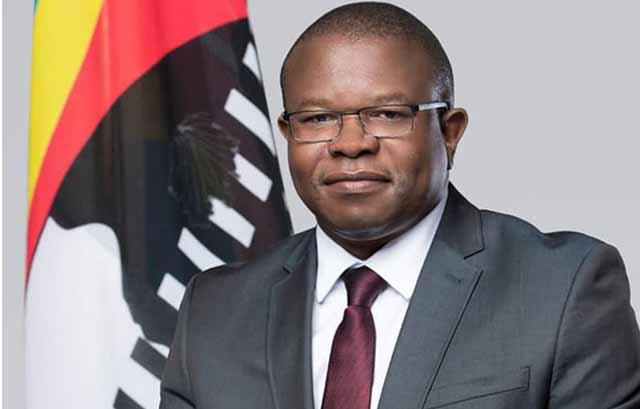Africa-Press – Eswatini. Minister of Commerce, Manqoba Khumalo has promised that government could create over 12 000 jobs for Emaswati this year.
This will be in line with His Majesty the King Mswati III’s vision to reduce unemployment while propelling the kingdom into being a first world country.
“We are planning to create over 9 000 direct permanent jobs, and a further 3 000 jobs that will support new ventures across different value and supply chains. About 2 000 of these jobs will be in the mining sector – specifically growth in existing mines coupled with new projects for which licenses have been issued. This is a mix of high end income jobs, medium income and low income as is found I’m allowing investments across the region,” Khumalo explained.
Five mining licences were issued to Africa Gold, Ngwenya Iron Ore, Mpaka Coal Mine, Mhlume Coal Mine and Mpakeni Quarry Mine.
Khumalo said there were about 1 500 jobs that could be generated by the retail sector. He mentioned that there were significant projects at various stages of development in Siteki and Manzini (a regional mall in Manzini and a commercial centre) worth over E3 billion combined.
The jobs to be availed here could range from high end commercial sector jobs to low income retail jobs.
“We have two malls already under development in Matsapha, one at Lusushwana and the other near the Police station in Matsapha. There’s a number of filling stations being constructed by Fuelex (Mitra), a new company, around the country as well,” he elaborated.
The minister pointed out that the next highly developing sector would be manufacturing. He disclosed that there would be a new cosmetics factory in Matsapha that was already setting up and could open between March and April.
“There will be a new PET blow moulding factory that will produce different forms of bottles for water, cooking oil and soft drinks for the local and export market. It opens in February 2022. The SOMI expansion has already taken off the ground,” Khumalo narrated.
He went on to say; “I want to make it clear that textile is a strategic focus of the ministry, and we intend growing this sector exponentially. We have existing g factories that are experiencing phenomenal growth as we speak, and we are doing everything we can to support them.”
Khumalo noted that the employment benefit of the manufacturing sector was unquestionable and highly beneficial to the country.
He announced that they would be building more factory shells in rural areas such as Magindaneni along the new road between Nhlangano and Gege that should finish at the same time as when the road gets completed. Government also continues in earnest with factory shell projects at Gamula, Ndzevane, Mantambe and Hlathikhulu (rebuilding the factory shell that was burnt down during the civil unrest).
He mentioned that this sector had started employing graduates in design, quality and engineering departments.
“The manufacturing sector mops up an amazing number of young people who would otherwise be jobless if we just folded our arms and did nothing. The downward impact on other sectors such as retail and transport is simply incredible. Our informal trade sector is very strong because of this sector. Our low end accommodation sector around these hubs continue to thrive,” added Khumalo.
It should be mentioned that over the last three years, a total of 18 152 jobs were created by government courtesy of the economic recovery plan. In the year 2018/19 at total of seven companies were established and created 1 854 jobs.
Six of the companies were in the textiles sector as two expanded their investment. There was a single investment in the wine processing industry.
In the year 2019/2020, a total of 11 companies were established and created 4 917 jobs.
Komati Downstream Development Project (KDDP) and Lower Usuthu Irrigation Programme (LUSIP) projects in the agriculture sector contributed 3 714 and the remaining were from the construction of the Kellogg’s factory, expansion in the textile sector, forestry, ice sugar, PvC pipes and rum processing.
In 2020/21, 49 new investments were realised and availed 11 381 jobs. These jobs came from a mix of retail, commercial banks, property development, investment companies and manufacturers’ investment on infrastructure such as shopping complexes, petrol filling station, and warehouses together with hardware stores among others.
“Despite the achievement on the jobs created under FDI, a total of 1 702 jobs were made redundant from January 2020 to March 2021,” noted Khumalo.
ERP has three priority areas of the ERP which were to grow the country’s Gross Domestic Product (GDP) – to change the macro-economic conditions; create jobs – increase productive economic activities and fast-track government revenue mobilisation – to improve the fiscal space which in turn would provide resources to implement the National Development Plan (NDP) 2019-2022.
For More News And Analysis About Eswatini Follow Africa-Press







